EFPRA is pleased to announce the speakers for the Technical Symposium at the 2024 Congress in Amsterdam.
Taking place on 13 June, the session is chaired by EFPRA’s Martin Alm who is well known for his work as Technical Director for EFPRA and as an independent expert on animal by-product regulation. The six other speakers will give presentations on a range of critical topics for animal by-products processing industry.

Lucas Cypriano – Advancing Trade and Sustainability: WRO’s International Impact
A zootechnician (Animal Science) who worked for 5 years as a nutritionist for poultry and swine production, formulating feed and premixes, as well as implementing and managing the 5S and ISO 9001 systems. He served for 8 years as the National Sales Manager for Eurotec Nutrition with additives for rendered meals and fats.
Since November 2011, Lucas Cypriano has assumed the Technical Department of ABRA (Brazilian Renderers Association), overseeing regulatory matters, hygienic manufacturing programs, HACCP plans, and rendering project consultancy.
With the WRO (World Renderers Organization), he has been a member of the Scientific Advisory Panel since 2014. Having held the positions of vice-president and president within the WRO, currently, Lucas is the Technical Director of the WRO.
Presentation Abstract
Lucas Cypriano, representing the World Renderers Organization (WRO) as Technical Director, presents the organization’s influential actions on the global stage. Highlighting key engagements, Cypriano discusses WRO’s contributions at the World Organisation for Animal Health (WOAH), emphasizing successes in international trade facilitation regarding BSE, Avian Influenza, and Foot and Mouth Disease Chapters of the Terrestrial Code. Additionally, Cypriano outlines WRO’s pivotal role in shaping Circular Bioeconomy Guidance with LEAP/FAO and its active participation in IFIF/FAO events like the Annual Meeting and Sustainable Livestock Transformation and the International Feed Regulators Meeting. This session offers valuable insights into WRO’s efforts in promoting sustainability and harmonizing regulations, crucial for the rendering industry’s global impact.
Sandra Blome – ASF in Europe and the world: status quo and future developments
Sandra BLOME studied veterinary medicine at the University of Leipzig, Germany, and has a doctorate degree in veterinary medicine.
Since 2008 she is senior scientist at the Friedrich-Loeffler-Institut, Federal Research Institute for Animal Health (FLI), Germany, and responsible for the national reference laboratories for classical and African swine fever.
Sandra Blome has long-term experience in working with transboundary viruses under high containment conditions up to BSL 3+ including animal experiments.
She is deputy head of the Institute of Diagnostic Virology since 2015. Her research focuses on studies on pathogenesis of viral infectious diseases with particular emphasis on virus-host interaction and diagnostics/vaccine development.
Presentation Abstract
African swine fever (ASF) has recently transformed from an exotic disease to a panzootic threat to domestic and wild suids world-wide. To combat the disease, strong bonds between countries and disciplines are necessary. Furthermore, critical knowledge gaps need to closed.
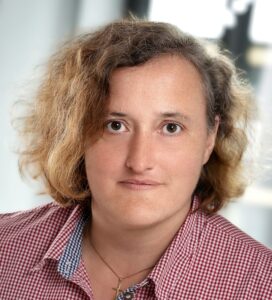
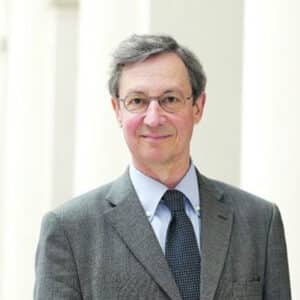
Harald von Witzke – The new era of scarcity in world agriculture
Emeritus Professor at the Thaer Institute, Humboldt University of Berlin and member of the Bord of the Thaer Forum for Agriculture e. V. He received his academic credentials from Göttingen University. Before joining Humboldt University in 1994 he was from 1983 to 1994 Professor in the Department of Agricultural and Applied Economics at the University of Minnesota in St. Paul, MN, USA.
Presentation Abstract
The global environment for agriculture has changed significantly since 2000. Since the turn of the millennium world agriculture has entered a new era of scarcity. The price of food has gone up and the natural capital of agriculture has become ever scarcer. EU Agricultural policies including the Green Deal and the Nature Restoration Law would destroy global natural capital and cause agricultural GHG emissions to go up significantly.
Richard van Lijssel – Rendering in a sustainable economy
Working at Darling Ingredients for 17 years, Richard van Lijssel is, as Director Technology, responsible for creating added value by developing new technology driven business concepts as well as realizing new technology-driven projects. Responsibilities also include Health, Safety & Environmental Management as well as Sustainability related matters. He is a Member of the Management Team of the Darling Ingredients Rendering & Specialties Division as well as the Rousselot Division. Richard is also member of the Darling Ingredients Corporate Sustainability Committee, delivering the Darling ESG performance. In addition, he is Chairman of the EFPRA Sustainability Committee as well as the GME (Gelatin Manufacturers Europe) Sustainability Committee.
Presentation Abstract
The rendering industry aspires to a climate-positive bio-economy, where our natural low carbon footprint products and renewable fuels help to decarbonize the value chain. This presentation gives an overview of activities of EFPRA’s Sustainability Committee over the past years on how rendering contributes to a sustainable and circular economy. As such, this presentation includes an update of the GFLI Carbon Footprint of key rendering products, the introduction of the Water Footprint for our industry as well as an overview of the fast changing regulatory landscape around sustainability.
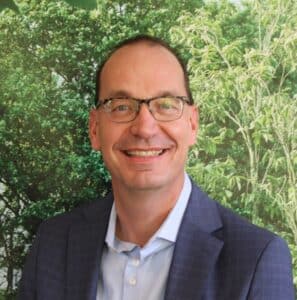
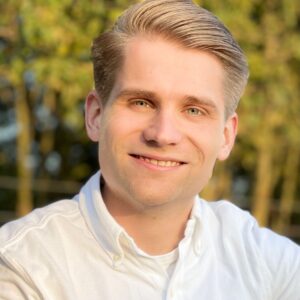
Jeffrey de Rooij – Practical challenges and first results from the use of PAP’s in animal diets
Jeffrey de Rooij studied for a Masters in Animal Sciences at Wageningen University and graduated in 2021 with the specializations Animal Nutrition and Adaptation Physiology. His thesis subjects were coccidiosis in broilers and the effect of feed for broiler breeders on offspring performance. From January 2022 he started working at the animal feed company AgruniekRijnvallei as poultry specialist and nutritionist with a focus on layers.
Presentation Abstract (co-presenting with Carine van Vuure)
In June 2021, the European parliament finally lifted the ban on PAP’s in animal feed. AgruniekRijnvallei was a pioneer to include PAP’s originating from pigs in laying hen diets. Practical trials with the results showed positive results on feed intake, mortality and welfare of laying hens in a practical trial.
Carine van Vuure – Practical challenges and first results from the use of PAP’s in animal diets
From 1983 till 1988 Mrs. C.A. van Vuure MSc. studied Animal Science at the University of Wageningen. Her specialisation was Animal Nutrition and Feed technology.
She started working as an animal nutritionist for Hendrix’ voeders in Boxmeer in January 1989. Her focus was on raw material evaluation for the use in pig, poultry and ruminant compound feed. In 1996 she started for Darling Ingredients International Rendering & Specialties (Rendac, Sonac, Ecoson). Her current responsibilities consist of Nutrition including R&D, combined with Regulatory Affairs with the focus on the Animal By-products, TSE, Food hygiene, Feed Hygiene, Fertilizers and Labelling Regulation. She is member of the standing technical committee of EFPRA (European Fat Processors and Rendering Association), further representing the company in EAPA (EU Blood processors) and also in EFFPA (European Former Foodstuffs Processors Association).
Presentation Abstract (co-presenting with Jeffrey de Rooij)
In June 2021, the European parliament finally lifted the ban on PAP’s in animal feed. AgruniekRijnvallei was a pioneer to include PAP’s originating from pigs in laying hen diets. Practical trials with the results showed positive results on feed intake, mortality and welfare of laying hens in a practical trial.
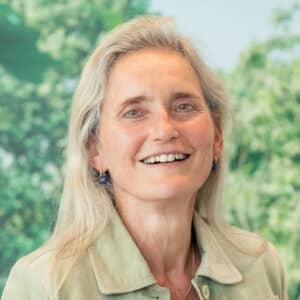
The EFPRA Congress is being held in Amsterdam from 12 – 15 June. The Technical Symposium is just one of several sessions for members of the rendering industry to learn abnd network at the event. Book your place now.